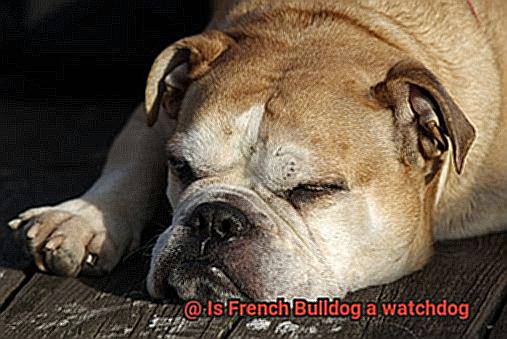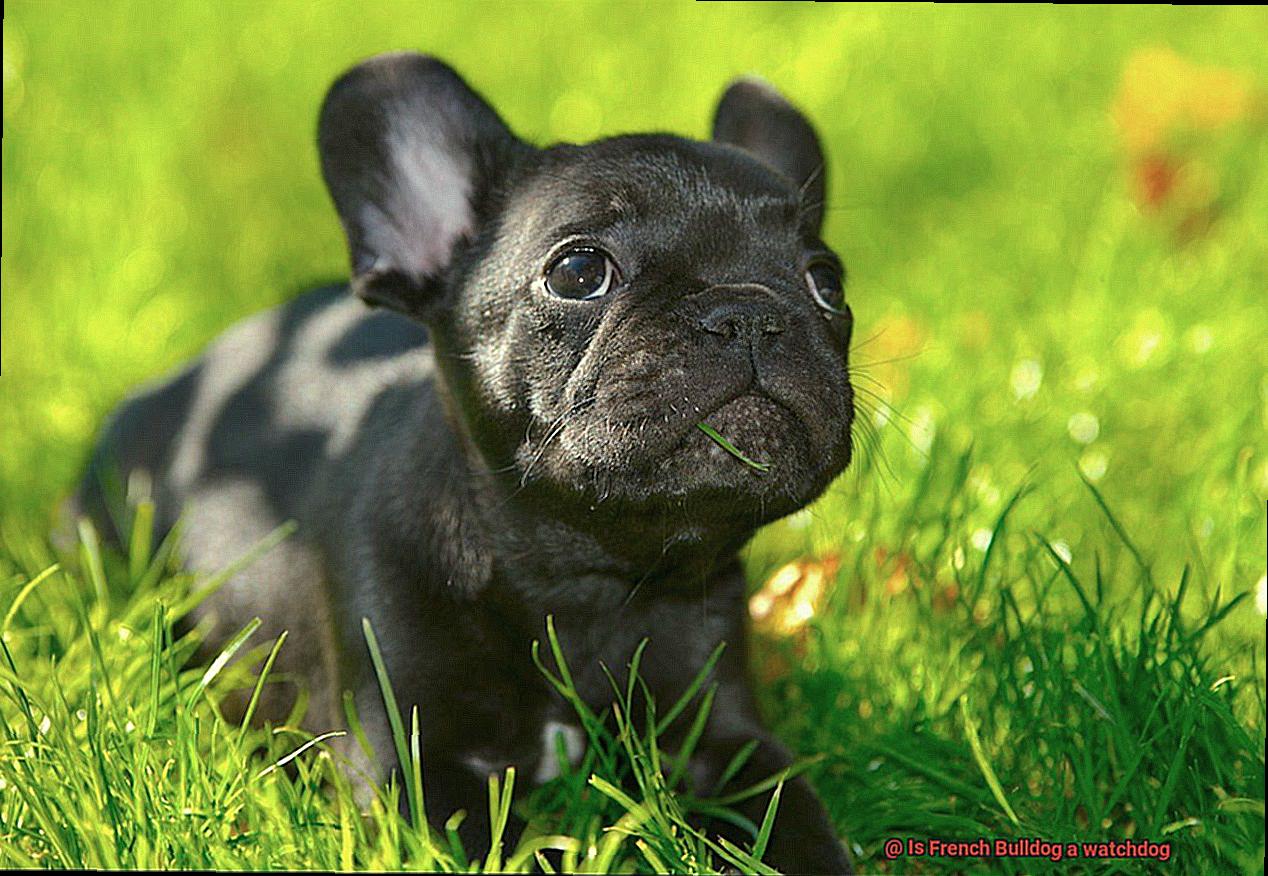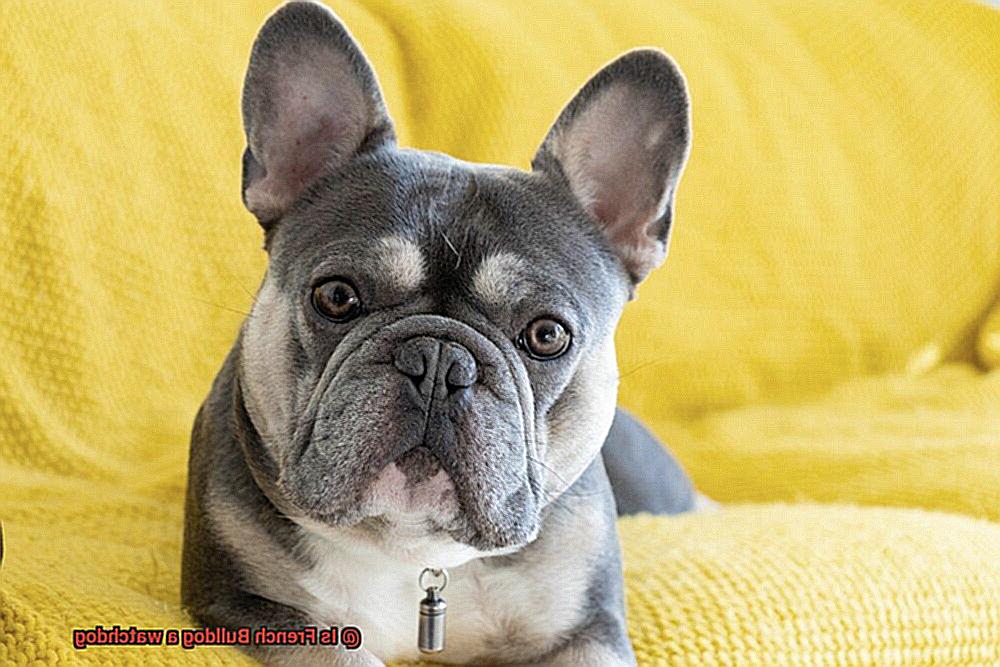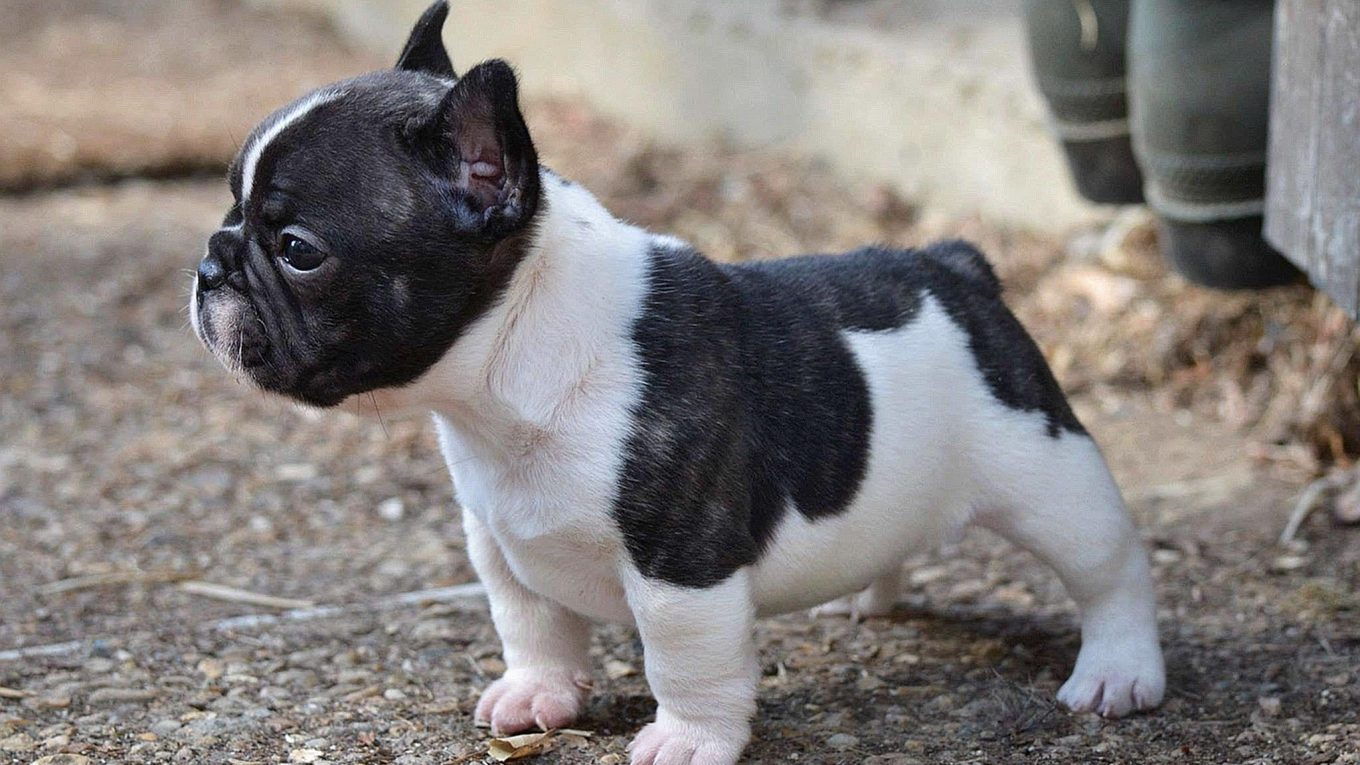Is French Bulldog a watchdog?
You’re on the lookout for a trusty sidekick who can keep an eye out for any intruders? Well, look no further than the lovable French Bulldog. With their adorable looks and playful nature, it’s easy to wonder if these furry friends have what it takes to be top-notch watchdogs. In this blog post, we’re here to spill the beans on whether French Bulldogs are effective at guarding your home.
Sure, they may not be as big and intimidating as some other guard dog breeds, but don’t let their size fool you. These little dynamos have a few tricks up their paws that might just surprise you. Join us as we delve into the fascinating world of French Bulldogs and uncover whether they’ve got what it takes to be your loyal protector. So grab a snack, kick back, and let’s dig into the nitty-gritty of French Bulldogs as watchdogs.
Physical Characteristics of French Bulldogs
Contents
- 1 Physical Characteristics of French Bulldogs
- 2 Protective Instincts in French Bulldogs
- 3 Training and Socialization for French Bulldogs
- 4 Are French Bulldogs Good Watchdogs?
- 5 Pros and Cons of a French Bulldog as a Watchdog
- 6 Other Breeds Suited for Watchdog Role
- 7 Encouraging Protective Instincts in Your French Bulldog
- 8 Conclusion
But what exactly makes them so special? In this comprehensive guide, we’ll dive deep into the physical characteristics of French Bulldogs, exploring everything from their compact build to their distinctive coat and tail. So, grab your Frenchie and let’s embark on this delightful adventure together.
Compact and Muscular Build:
French Bulldogs may be small to medium-sized dogs, but don’t let their size fool you. They boast a compact and muscular build with a sturdy bone structure. Their broad chest and well-sprung ribs give them a powerful appearance that belies their petite stature.
Square-Shaped Head and Brachycephalic Trait:
The hallmark of a French Bulldog is undoubtedly its square-shaped head. Proportionate to their body, it features a short and wide muzzle that gives them that unmistakable Frenchie look. And let’s not forget those adorable wrinkles on their forehead, adding an extra touch of cuteness. However, it’s important to note that their brachycephalic trait can sometimes lead to breathing difficulties and overheating, so be mindful of their activity levels in hot weather.
Bat-Like Ears:
French Bulldogs are known for their bat-like ears that sit high on their head. While most Frenchie ears are erect, some may have slightly drooping or folded ears, adding to their unique charm.
Large, Round Eyes:
Look into a French Bulldog’s eyes, and you’ll be captivated by their size and expressiveness. These round and dark-colored orbs are set wide apart, giving them an endearing and attentive gaze that melts hearts everywhere.

Short and Smooth Coat:
Maintenance? Ain’t nobody got time for that. French Bulldogs come to the rescue with their short and smooth coat, which is not only easy to maintain but also comes in a variety of colors and patterns. From brindle and fawn to pied, cream, black, and white, there’s a Frenchie coat for every taste.
The “Screwed” Tail:
No, we’re not talking about a prankster Frenchie here. French Bulldogs have a naturally short tail that often has a kink or curl in it, earning it the nickname “screwed.” It’s just another quirky feature that makes these pooches even more lovable.
Sturdy Stance and Agile Movement:
Despite their short legs, French Bulldogs have a sturdy stance and a solid build that allows them to be agile and quick when needed. Don’t be fooled by their size; they can keep up with the best of them.
Protective Instincts in French Bulldogs
When it comes to protective instincts, French Bulldogs may not be the first breed that comes to mind. With their adorable appearance and friendly demeanor, one might assume that they are more suited for cuddles and companionship rather than protection. However, don’t let their small size and cute faces fool you – these little pups have a fierce protective instinct that is ready to spring into action when their loved ones are in danger.
Barking Up a Storm
French Bulldogs have a natural instinct to bark and alert their owners when something seems off. Whether it’s a suspicious noise or a stranger approaching, they will not hesitate to sound the alarm. This makes them excellent watchdogs, as they are always on high alert and ready to protect their pack.
Fearless Defenders
Despite their compact size, French Bulldogs are fearless when it comes to defending their family. Their loyalty knows no bounds, and they will go to great lengths to keep their loved ones safe. Their strong muscular build and tenacious nature make them a formidable opponent for any intruder or threat.
Territorial Patrol
French Bulldogs are not only protective of their owners but also of their territory. They take their role as guardian of the home seriously and will mark their territory with their scent. You might even catch them patrolling the area to ensure its safety. This territorial instinct, combined with their loyalty, makes them an effective deterrent against potential intruders.
Training and Socialization
While French Bulldogs have an innate protective instinct, proper training and socialization are crucial to channel this instinct in a positive way. Exposing them to different people, animals, and environments from a young age helps them learn to distinguish between real threats and harmless situations.
Establishing Pack Leadership

To ensure that a French Bulldog’s protective instincts are directed appropriately, it’s important for owners to establish themselves as the pack leader. By providing consistent rules and boundaries, owners can reinforce the dog’s understanding of its role as a protector. This helps to ensure that their protective instincts are used in the right situations.
Training and Socialization for French Bulldogs
When it comes to watchdog abilities, French Bulldogs may not be the first breed that comes to mind. However, their loyal and protective nature, combined with proper training and socialization, can transform them into reliable alarm systems. In this guide, we will explore the importance of training and socialization for French Bulldogs and provide practical tips to develop their watchdog abilities.
Training for Boundaries and Basic Commands:
- Start early: Begin training your French Bulldog at a young age to establish boundaries and teach basic commands.
- Positive reinforcement: Utilize treats, praise, and playtime as rewards for desired behaviors.
- Consistency and patience: French Bulldogs can be stubborn, so consistency and patience are key during the training process.
Watchdog Training:
- Appropriate barking: Teach your French Bulldog when it is appropriate to bark and when to remain quiet.
- Command training: Introduce commands like “quiet” or “enough” to help control excessive barking.
- Exposure to stimuli: Expose your French Bulldog to different sounds, sights, and situations to help them differentiate between normal occurrences and potential threats.
Socialization for Well-Rounded Watchdogs:
- Early exposure: Start socializing your French Bulldog from a young age to various people, animals, and environments.
- New experiences: Take your pup on walks in different locations, introduce them to new people and animals, and consider obedience classes or dog parks.
- Reduce fear and aggression: Proper socialization reduces the likelihood of fear or aggression later in life.

Understanding Their Nature:

- Friendly and sociable: French Bulldogs are known for their friendly nature rather than aggressive tendencies.
- Reliable alarm systems: Through training and socialization, they can become reliable watchdogs by alerting their owners with their unique vocalizations if something seems out of the ordinary.
Are French Bulldogs Good Watchdogs?
When it comes to choosing a watchdog, French Bulldogs may not be the first breed that comes to mind. However, these lovable and affectionate dogs can surprise you with their natural instincts and protective nature. Let’s dive deeper into why French Bulldogs can make good watchdogs.
- Keen sense of hearing: French Bulldogs have an exceptional sense of hearing, allowing them to pick up on even the slightest sounds. This makes them excellent at detecting potential threats or intruders before they even reach your doorstep.
- Distinctive bark: Despite their small size, French Bulldogs have a surprisingly deep and resonant bark. This unexpected sound can startle intruders and serve as an effective deterrent. Plus, their bark is hard to ignore, making sure you’re alerted to any potential danger.
- Protective nature: French Bulldogs develop strong bonds with their families and will go to great lengths to protect them. They may not have the physical prowess of larger breeds, but their loyalty and determination make up for it. You can count on your French Bulldog to sound the alarm and stay by your side in times of trouble.
- Visual deterrent: While they may not have the intimidating presence of larger watchdog breeds, the sight of a French Bulldog can still discourage potential intruders. Their unique appearance and the perception that they are fiercely protective can be enough to make someone think twice before attempting any mischief.
- Training potential: With proper training and socialization from an early age, French Bulldogs can excel as watchdogs. They are intelligent and eager to please, making them quick learners when it comes to basic obedience commands and alerting behaviors.
It’s important to acknowledge that not all French Bulldogs will possess the same level of watchdog abilities. Personality and individual characteristics play a significant role in determining how effective they will be in this role. Additionally, their brachycephalic nature may limit their physical endurance and ability to sustain prolonged barking.
Pros and Cons of a French Bulldog as a Watchdog
When it comes to watchdogs, French Bulldogs may not be the first breed that comes to mind. However, don’t let their adorable appearance fool you – these little warriors have some surprising qualities that make them effective protectors. In this blog post, we’ll explore the pros and cons of having a French Bulldog as a watchdog.
Pros:
Alertness:
French Bulldogs have a natural alertness and an exceptional sense of hearing. They can pick up on even the slightest sounds or movements, making them excellent at detecting potential threats or intruders. So if there’s something amiss, rest assured your French Bulldog will be quick to raise the alarm.
Territorial Nature:
French Bulldogs are fiercely loyal and develop strong bonds with their families. They have a protective instinct that extends to their territory, making them willing to defend their loved ones and home from any perceived danger. Their devotion means you can count on them to guard your property wholeheartedly.
Intimidating Appearance:
Despite their small size, French Bulldogs have a powerful presence. With their muscular build and distinctive wrinkled face, they can give off an air of strength and determination. Potential intruders may think twice before approaching a home defended by a French Bulldog, providing an added layer of security.
Good Deterrent:
While they may lack the aggression or physical prowess of larger guard dog breeds, French Bulldogs still serve as an effective deterrent. Most burglars opt for homes without dogs, knowing that canine presence increases the risk of being caught or bitten. Having a French Bulldog in your home can make criminals reconsider their plans.
Cons:
Lack of Aggression:
French Bulldogs are known for their friendly and sociable temperament, which may make them less threatening to intruders. While they’ll bark and alert you to potential danger, their non-aggressive nature means they may not pose a significant threat to the intruder.
Size Limitations:
French Bulldogs are small in size, which can limit their ability to physically confront or intimidate intruders effectively. However, their presence alone can still be enough to deter criminals.
Health Issues:
French Bulldogs are prone to various health problems due to their unique physical characteristics, such as respiratory issues and brachycephalic syndrome. These health issues may affect their ability to perform the duties of a watchdog effectively.
Noise Level:
French Bulldogs are not shy when it comes to barking. While this can be advantageous for alerting you to potential threats, it can also be a disadvantage for those living in close proximity to neighbors or in apartments with noise restrictions.
Other Breeds Suited for Watchdog Role
French Bulldogs may have their own charm and unique qualities, but when it comes to the watchdog role, there are several other breeds that are worth considering. In this blog post, we will explore some of these breeds and their characteristics that make them excellent protectors. So, if you’re looking for a breed that can keep an eye on your home and family, keep reading.
German Shepherd:
Known for their intelligence and loyalty, German Shepherds are widely regarded as one of the best watchdog breeds. They are quick learners and can be easily trained to respond to specific commands. Their protective instinct and imposing presence make them an excellent choice for home security.
Rottweiler:
Rottweilers are powerful dogs with a natural protective instinct. They are known for their loyalty and devotion to their owners. With proper training and socialization, Rottweilers can become well-rounded watchdogs, ensuring the safety of your loved ones.
Doberman Pinscher:
Dobermans possess a keen alertness and an innate desire to protect their family and property. These intelligent dogs require consistent training and socialization to channel their protective instincts appropriately. Once trained, they become exceptional watchdogs.
Boxer:
Boxers may be playful and friendly, but they also have a protective streak that makes them effective watchdogs. Their energy and alertness enable them to quickly detect potential threats. Boxers are great with families and make devoted companions while also keeping a watchful eye on your home.
Bullmastiff:
Originally bred to guard estates in England, Bullmastiffs are large, powerful dogs with a calm temperament around their family. However, they can quickly become protective if they sense danger. Their loyalty and bravery make them excellent watchdogs.
Akita:
Akitas are known for their strong protective instincts and loyalty. They can be aloof around strangers but are fiercely devoted to their families. Consistent training and socialization are essential for Akitas to ensure their protective nature is well-controlled.
Belgian Malinois:
Belgian Malinois are highly intelligent and trainable dogs that excel in various roles, including that of a watchdog. With their strong protective instinct, loyalty, and dedication, they make excellent guardians. Mental and physical stimulation is key to keeping them fulfilled.
Encouraging Protective Instincts in Your French Bulldog
Encouraging Protective Instincts in Your French Bulldog
French Bulldogs are known for their friendly and sociable nature, but with the right training and encouragement, you can help bring out their protective instincts. Here are some tips to help you encourage your Frenchie to be a vigilant and protective companion:
- Build a strong bond: Spend quality time with your French Bulldog and make them feel loved and secure. This will create a foundation of trust between you and your dog, which is essential for encouraging protective behaviors.
- Socialize from an early age: Expose your Frenchie to different people, places, and experiences to help them become confident and comfortable in various situations. This will make them more aware of their surroundings and develop a well-rounded temperament.
- Basic obedience training: Teach your French Bulldog basic commands like “sit,” “stay,” and “come.” This not only makes them more obedient but also gives you better control over their behavior in different situations, including when you want them to exhibit protective instincts.
- Gradual exposure to stimuli: Introduce your Frenchie to different stimuli gradually. Start with low-level distractions like doorbells or knocking sounds, and reward them for alerting or showing interest. Gradually increase the intensity of the stimuli to help them become more vigilant and attentive.
- Consider professional training: Enroll your French Bulldog in a protection or guard dog training program. These programs are designed to teach dogs how to protect their owners and property while maintaining a balanced temperament. Professional trainers can guide you on encouraging and channeling your Frenchie’s protective instincts appropriately.
- Be a calm and confident leader: Dogs are intuitive creatures and can pick up on your emotions and cues. If you want your French Bulldog to be protective, remain calm and confident in potentially threatening situations. Your dog will look to you for guidance on how to respond.
Conclusion
In conclusion, French Bulldogs are surprisingly adept at being watchdogs despite their small stature and friendly disposition. With their sharp sense of hearing, distinctive bark, and intimidating appearance, they possess the physical attributes necessary to protect their loved ones and property. Moreover, their innate instinct to defend and claim territory makes them fiercely loyal guardians.
It is important to note, however, that not every French Bulldog will possess the same level of watchdog skills. Individual personality traits play a significant role in determining their effectiveness in this role. Early training and socialization are essential in harnessing their protective instincts for positive purposes.
While French Bulldogs possess many qualities that make them suitable as watchdogs, it is crucial to acknowledge certain limitations. Their lack of aggression compared to larger guard dog breeds and potential health issues stemming from their unique physical characteristics may impact their ability to fulfill the duties of a watchdog effectively.
Ultimately, if you seek a breed that combines loyalty, vigilance, and protective instincts, French Bulldogs can be an excellent choice.




